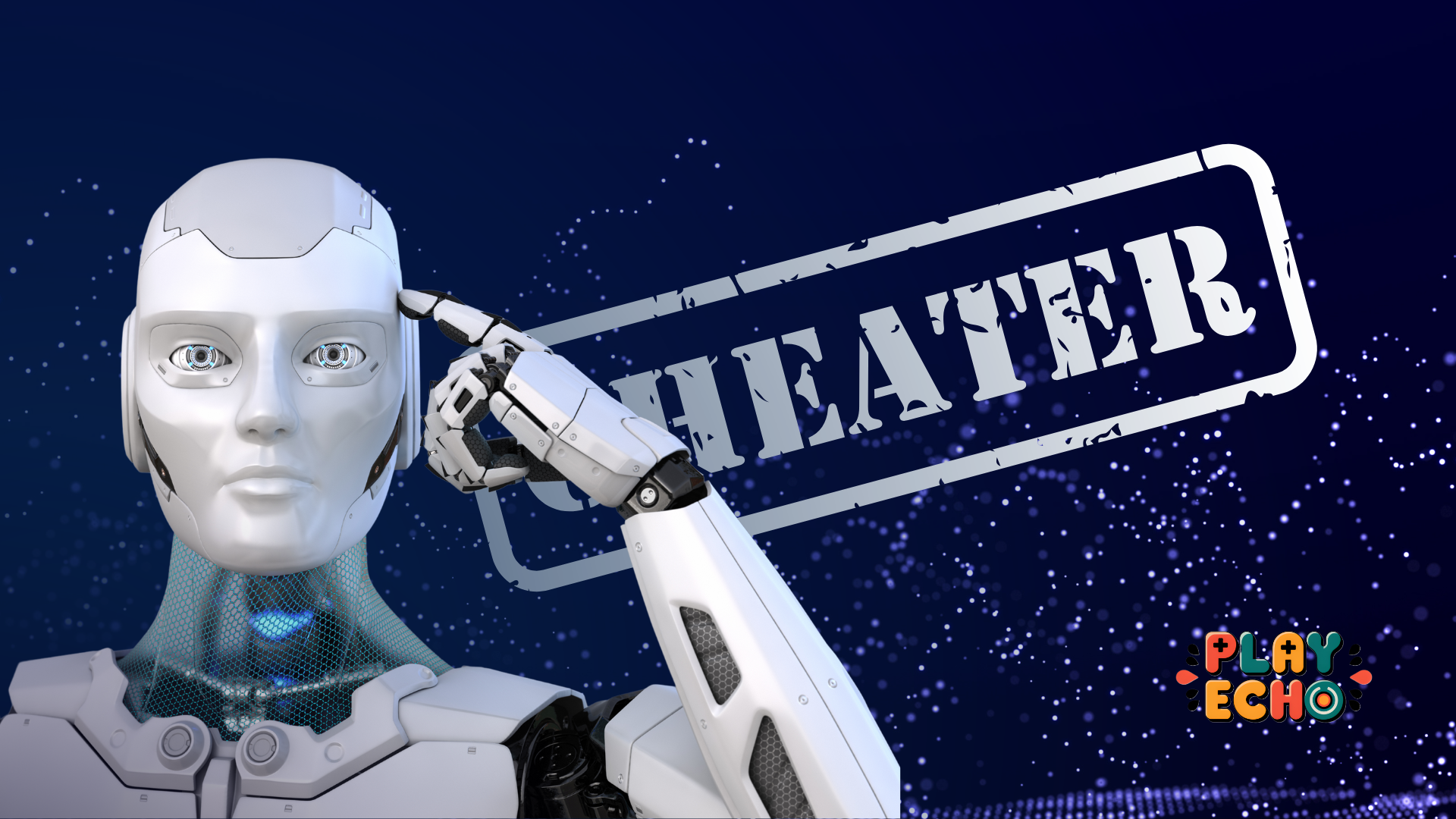
How AI-Powered Anti-Cheat Systems Are Improving Online Gaming in 2025
Explore how artificial intelligence is revolutionizing anti-cheat mechanisms in online gaming, enhancing fairness and player experience in 2025.
GAME INDUSTRYGAMING TECH
Tama
1/22/2025
AI-Powered Anti-Cheat Systems: Revolutionizing Online Gaming in 2025
Online gaming has long been plagued by cheating, which not only ruins the experience for other players but also challenges developers in maintaining a level playing field. Over the years, game developers have implemented various anti-cheat measures, from simple code checks to more complex server-side detection systems. However, as cheating methods have become more sophisticated, traditional anti-cheat systems have struggled to keep up. The rise of artificial intelligence (AI) in gaming has changed the landscape dramatically. AI-powered anti-cheat systems are offering unprecedented capabilities in detecting, preventing, and even predicting cheating in real-time. These systems are designed to be smarter, faster, and more adaptable than ever before, ensuring a fairer gaming experience for all players.
The Evolution of Anti-Cheat Systems
The journey of anti-cheat technology has seen significant advancements, but the development of AI-powered systems is one of the most notable leaps. In the early days, most anti-cheat measures were based on signature detection, which identified cheat programs by their unique digital footprint. While this method worked for a time, it quickly became outdated as cheaters found new ways to bypass these systems. As cheating tactics evolved, developers turned to more complex solutions such as server-side monitoring and client-side detection. However, these approaches still had limitations, such as the potential for false positives and the challenge of detecting unknown cheats. In recent years, AI has emerged as a powerful solution, taking anti-cheat technology to the next level by using machine learning algorithms that can analyze massive amounts of data, identify patterns of suspicious behavior, and adapt to new cheating techniques in real time.
AI's Role in Enhancing Fair Play
AI-powered anti-cheat systems function by analyzing vast amounts of gameplay data and identifying behavioral patterns that deviate from normal player actions. This allows AI to detect cheating methods even before they are fully understood, giving developers a proactive way to combat cheating. Unlike traditional systems that rely on predetermined cheat signatures, AI systems can learn from each match and improve their detection capabilities over time. For example, if a player consistently performs actions that suggest the use of a cheat, such as snapping their aim to a target with perfect precision, the AI system will flag this as suspicious behavior. This level of detection is far more efficient and precise than manual monitoring or relying on community reports.
Furthermore, AI can enhance fair play by predicting potential cheating scenarios before they occur. By analyzing a player's behavior over time and identifying patterns, AI systems can detect when a player is likely to cheat, based on the context of their actions. This prediction allows anti-cheat systems to intervene early, preventing cheating before it disrupts the game. With this advanced level of intelligence, AI-driven systems are revolutionizing the way games maintain fairness and integrity, offering a more seamless and enjoyable experience for all players involved.
Real-Time Detection and Response
One of the most significant advantages of AI-powered anti-cheat systems is their ability to operate in real-time. In the past, traditional systems would often rely on post-match analysis or manual reports to identify cheaters. This approach could lead to delayed action, leaving cheaters free to exploit the game for extended periods. AI systems, however, can monitor player behavior in real-time, instantly detecting and addressing cheating attempts as they occur. This allows developers to take immediate action, whether it’s issuing a temporary ban, kicking a player from the game, or notifying moderators for further review.
The real-time capabilities of AI systems have proven to be a game-changer, particularly in competitive gaming environments where fairness is crucial. For example, in a fast-paced multiplayer game, a cheater using an aimbot or wallhack could gain an unfair advantage, ruining the experience for other players. With AI, these cheats can be detected and dealt with almost instantly, ensuring that the game remains fair for all participants. This swift response is especially important in games with high stakes, such as esports, where players' reputations and careers can be on the line.
Case Study: Valorant's Vanguard System
One of the most prominent examples of AI-powered anti-cheat technology is Riot Games’ Vanguard system, which is employed in the popular game Valorant. Vanguard is a robust anti-cheat solution that uses machine learning algorithms to monitor player behavior, detect cheating tools like aimbots and wallhacks, and prevent players from gaining an unfair advantage. What sets Vanguard apart from traditional systems is its kernel-level driver, which operates at the core of a player’s system, allowing it to detect cheats that would otherwise remain hidden. This aggressive approach has proven effective in reducing cheating incidents and maintaining the integrity of the game.
The success of Vanguard has inspired other developers to adopt similar AI-driven anti-cheat solutions in their own games. Riot Games has continued to refine Vanguard, using the data it gathers to improve its cheat detection capabilities, making it one of the most advanced anti-cheat systems in the gaming industry today. This kind of system represents the future of online gaming, where AI plays an integral role in ensuring a level playing field.
Challenges and Considerations
Despite the numerous benefits of AI-powered anti-cheat systems, they are not without their challenges. One of the primary concerns is the potential for false positives. AI systems rely on data analysis to detect cheating, but there is always the possibility that legitimate players may be flagged as cheaters due to unusual behavior or system anomalies. While developers have worked hard to minimize these instances, false positives remain a challenge that requires constant refinement of the AI algorithms.
Another consideration is the ongoing need for updates and adaptability. As cheating techniques continue to evolve, AI systems must be continuously trained and updated to keep up with new methods. This means that developers must invest time and resources into ensuring that their AI-driven anti-cheat systems remain effective in the face of ever-changing cheating tactics. Additionally, there are concerns about the privacy of players, as AI systems often require access to sensitive gameplay data. Developers must strike a balance between ensuring effective anti-cheat measures and protecting player privacy.
Conclusion
In 2025, AI-powered anti-cheat systems are reshaping the landscape of online gaming by offering more robust, proactive, and adaptive solutions for detecting and preventing cheating. These systems are helping developers maintain a fair and enjoyable gaming experience for players, addressing long-standing issues with cheating that have plagued the industry for years. While challenges remain, the use of AI in anti-cheat technology is a significant step forward in ensuring that online gaming continues to be a space where skill, strategy, and fair play take center stage.
PlayEcho delivers the latest news, reviews, and insights from the gaming world, highlighting local talents and global trends for gamers everywhere.
FAQs
How do AI-powered anti-cheat systems differ from traditional methods?
A: AI systems analyze gameplay data to detect anomalies and predict new cheating methods, whereas traditional systems rely on known cheat signatures and patterns.Are AI-driven anti-cheat systems foolproof?
A: While highly effective, AI systems are not infallible. They require continuous updates and monitoring to adapt to evolving cheating techniques.Do AI anti-cheat systems impact game performance?
A: When implemented correctly, AI anti-cheat systems are designed to operate with minimal impact on game performance, ensuring a seamless player experience.Can AI anti-cheat systems detect all forms of cheating?
A: AI systems are highly effective at detecting known and new forms of cheating, but no system can guarantee 100% detection. Continuous improvement and adaptation are essential.How do developers ensure the privacy of players with AI anti-cheat systems?
A: Developers implement strict data privacy protocols, ensuring that AI systems analyze gameplay data without compromising player privacy or collecting unnecessary personal information.
Terms and Conditions
Privacy Policy
PlayEcho
Newest information about game industry and analysis.
Subscribe to our newsletter
© 2025. All rights reserved.








